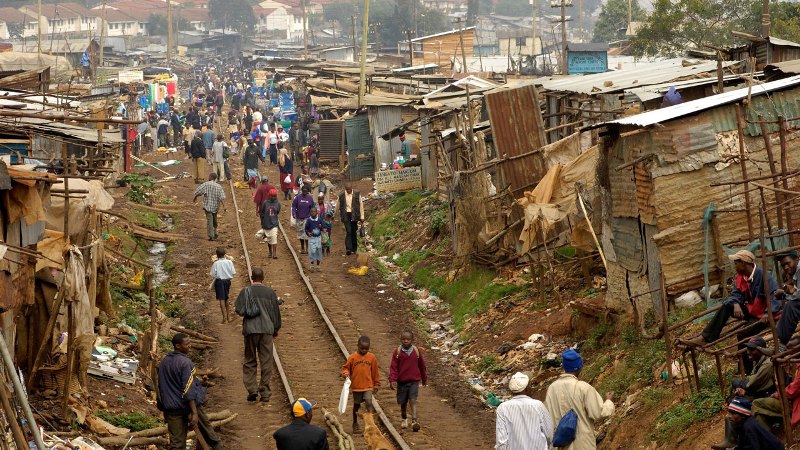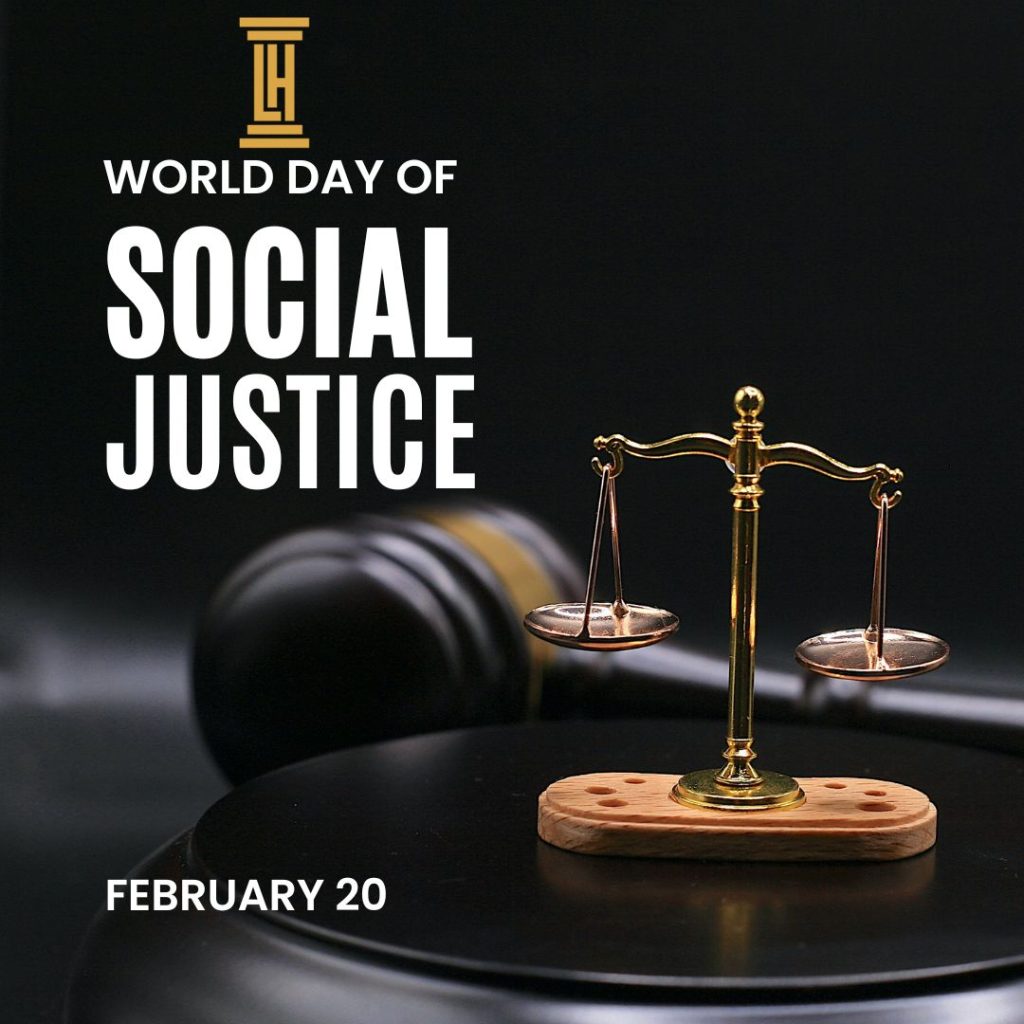Dismantling Divides: The Power of Inclusive Social Justice
- February 20, 2025
- Posted by: Hub Admin
- Categories: Accountability, Article, Human Rights, Rule of Law and Access to Justice

World Day of Social Justice 2025
By Joshua Dada
A Call to Action on World Day of Social Justice 2025
Introduction
The World Day of Social Justice is an annual commemoration marked on the 20th of February to spotlight the global need for social justice advocacy. This year’s commemoration theme is “Empowering Inclusion: Bridging Gaps for Social Justice.” An in-depth consideration of this year’s theme would reveal that the focus of this year’s commemoration is to advocate for inclusion at all levels, identify existing gaps, and concert efforts on closing those gaps. It also underscores the need to address systemic inequalities and create avenues for marginalised and vulnerable groups to fully take part in society. For Law Hub Development and Advocacy Centre (Law Hub), this day reminds us of our mission to steadfastly advance criminal justice reform, protect and promote human rights, and advocate for social justice in Nigeria.
The Nigerian Context: Exclusion and Inequality

Nigeria is a country abundantly blessed with rich human and natural resources. However, despite its vast resources and almost limitless potential, it remains a nation grappling with deep-seated inequalities, extreme cases of exclusion, and systemic barriers that need to be urgently addressed. Furthermore, social and economic inequalities are worsened by gender-based discrimination, ethnic tensions, and the digital divide, which leaves many Nigerians without access to the tools and opportunities needed to thrive in a rapidly evolving world. Quite unfortunately, vulnerable groups—including women, children, persons with disabilities, internally displaced persons (IDPs), and the poor—are most affected. Without a doubt, there is a need to deliberately empower and support critical stakeholders to take steps towards building a fairer and more equitable society. This paper highlights the challenges, opportunities, and steps needed to bridge these inequality gaps and deliberately empower inclusion in Nigeria.
Empowering Inclusion: The Role of Law Hub Development and Advocacy Centre
At Law Hub Development and Advocacy Centre, we believe that empowering inclusion is not just about creating opportunities but also about dismantling the systemic barriers that perpetuate inequality. Whilst our work focuses on a number of thematic areas, there are three major components of the work we do that connect with the theme of this paper, and they are:
- Criminal Justice Reform: We are committed to addressing the systemic issues within Nigeria’s criminal justice system. Through advocacy, legal aid, and policy reform, we work to ensure that justice is accessible, fair, and equitable for all. Our initiatives include:
- Advocating the passage of key criminal justice legislations in the over twelve (12) states where we work.
- Advocating for the implementation of salient legislative provisions that promote access to justice, protection of human rights, speedy trial, etc.
- Conducting media campaigns and other sensitisation programmes to enlighten the populace about the rights they are guaranteed under extant legislation.
- Advocating for the decongestion of prisons and the implementation of alternatives to incarceration.
- Promoting police accountability and the protection of human rights.
- Human Rights Protection and Promotion: Human rights are the foundation of social justice. We work assiduously to protect and promote the rights of marginalised and vulnerable groups, including women, children, and persons with disabilities. Our efforts include:
- Raising awareness about human rights through community outreach and education.
- Providing legal support to indigent persons and victims of human rights violations.
- Advocating for policies that promote gender equality and social inclusion.
- Social Justice Advocacy: Social justice cannot be achieved without addressing the root causes of inequality. We advocate for policies and programs that promote economic empowerment, access to education, social protection and climate justice for all Nigerians. Our initiatives include:
- Initiating public interest litigation and class actions to advocate the cause of vulnerable groups and to prevent undue social disadvantage.
- Collaborating with stakeholders to address the digital divide and ensure that marginalised groups have access to technology and digital skills.
- Promoting inclusive policies that empower women, youth, and persons with disabilities to participate fully in society.
- Advocating for the expansion of social safety nets to protect the most vulnerable.
- Advocating for the adoption of safe environmental practices, especially in areas where the poor and other vulnerable people live.
Bridging Gaps: A Call to Action

The theme for 2025, “Empowering Inclusion: Bridging Gaps for Social Justice,” is a call to action for all stakeholders—government, civil society, the private sector, and individuals—to work together to create a more inclusive society. We have made some recommendations below that can be adopted by different stakeholders:
- Strengthen legal and policy frameworks: The government at all levels should prioritise the enactment and implementation of laws and policies that promote inclusion and protect the rights of marginalised groups. This includes reforms to the criminal justice system, gender equality laws, and policies that address the digital divide.
- Invest in education and digital literacy, especially for vulnerable groups: Without a doubt, education is a powerful tool for empowerment, capacity-building, and bridge-building between vulnerable groups and the rest of society.
- Promote community engagement and participation: Inclusion cannot be achieved without the active participation of communities. We encourage grassroots organisations, community leaders, and individuals to work together to address local challenges and advocate for change.
- Foster Collaboration and Partnerships: Cross-sector collaboration is necessary for achieving inclusion and bridging social gaps. Thus government agencies, CSOs, media and other partners must work together to implement inclusive policies and programs.
Conclusion
As we commemorate the World Day of Social Justice 2025, we need to bear in mind that empowering inclusion is necessary for building a fairer and more equitable society. At Law Hub Development and Advocacy Centre, we remain committed to advancing criminal justice reform, protecting human rights, and advocating for social justice in Nigeria.
We call on all Nigerians everywhere to join us in this evergreen campaign for social inclusion. We believe that together, we can bridge the social gaps and create a society where everyone, irrespective of their background or circumstances, has the opportunity to have a meaningful life and thrive.
